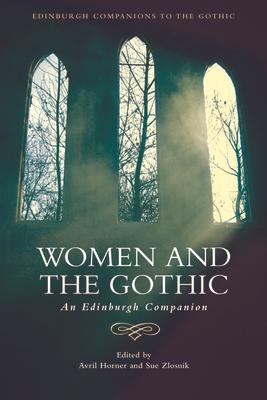A re-assessment of the Gothic in relation to the female, the 'feminine', feminism and post-feminism
This collection of newly commissioned essays brings together major scholars in the field of Gothic studies in order to re-think the topic of 'Women and the Gothic'. The 14 chapters in this volume engage with debates about 'Female Gothic' from the 1970s and '80s, through second wave feminism, theorisations of gender and a long interrogation of the 'women' category as well as with the problematics of post-feminism, now itself being interrogated by a younger generation of women. The contributors explore Gothic works - from established classics to recent films and novels - from feminist and post-feminist perspectives. The result is a lively book that combines rigorous close readings with elegant use of theory in order to question some ingrained assumptions about women, the Gothic and identity.
Key Features
Revitalises the long-running debate about women, the Gothic and identityEngages with the political agendas of feminism and post-feminismPrioritises the concerns of woman as reader, author and criticOffers fresh readings of both classic and recent Gothic works

Women and the Gothic: An Edinburgh Companion
A re-assessment of the Gothic in relation to the female, the 'feminine', feminism and post-feminism
This collection of newly commissioned essays brings together major scholars in the field of Gothic studies in order to re-think the topic of 'Women and the Gothic'. The 14 chapters in this volume engage with debates about 'Female Gothic' from the 1970s and '80s, through second wave feminism, theorisations of gender and a long interrogation of the 'women' category as well as with the problematics of post-feminism, now itself being interrogated by a younger generation of women. The contributors explore Gothic works - from established classics to recent films and novels - from feminist and post-feminist perspectives. The result is a lively book that combines rigorous close readings with elegant use of theory in order to question some ingrained assumptions about women, the Gothic and identity.
Key Features
Revitalises the long-running debate about women, the Gothic and identityEngages with the political agendas of feminism and post-feminismPrioritises the concerns of woman as reader, author and criticOffers fresh readings of both classic and recent Gothic works